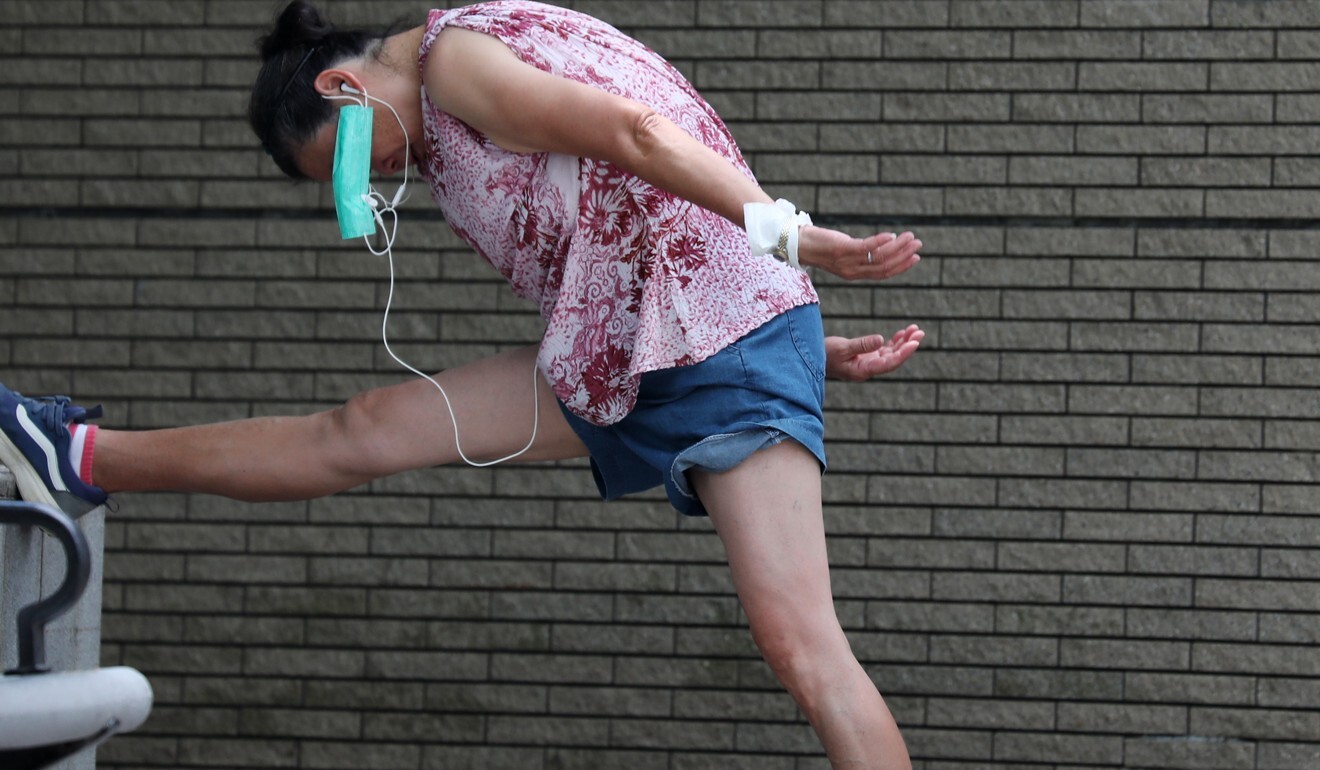
Hong Kong Covid-19 third wave: do you need to wear a mask if you exercise outdoors … or should you exercise at all?
- Unlike in Singapore, mask-wearing exceptions do not apply to people who want to work up a sweat outdoors
- Experts urge fitness enthusiasts to stay home or tone down activities while still wearing masks, as physical exertion with face coverings may lead to breathing problems
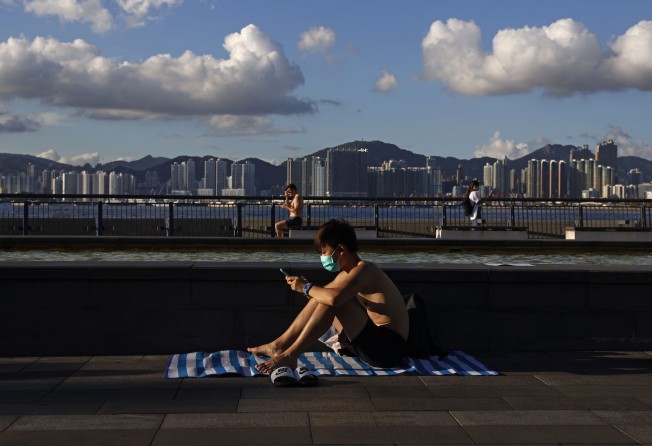
Hong Kong expanded compulsory mask-wearing rules to cover all public areas, as part of the strictest social-distancing measures unveiled by the government on Monday.
“Residents should wear masks to protect themselves and everyone around them,” Chief Secretary Matthew Cheung Kin-chung said at an afternoon press conference announcing the ramped-up rules.
The new regulation will take effect on Wednesday and is set to last a week. Currently it is only compulsory to wear masks at public indoor venues.
Andrea Fraser, 32, who plays football for Kitchee SC’s women’s team, said the new mandate was “incredibly frustrating for athletes” and that under the coming rule, she did not plan to exercise outdoors.
“In the summer, Hong Kong gets incredibly hot and humid. It’s already super uncomfortable when I’m walking at a normal pace. I can’t even imagine running or doing sprints as part of a football training workout … I would be dying,” she said.
“I think people are either not going to exercise as much or will just put up with it … even though it’s not ideal.”

Why is the government expanding the mask-wearing requirement?
Hong Kong is battling a third wave of coronavirus infections, with more than 100 new cases recorded for the sixth day in a row.
Cheung said there was a need to toughen Covid-19 measures after noting how some recent confirmed cases showed people were exposed to higher risks of infection when they did not wear masks and engaged in various social activities.
The city set a single-day record of 145 coronavirus cases on Monday, with four additional deaths, taking the tally to 2,778 infections and 22 related fatalities.
Of the latest cases, 142 were locally transmitted, also a record high.
The number of Covid-19 infections has already surpassed the 1,755 recorded for the severe acute respiratory syndrome outbreak in 2003.
Concerns have also been raised over the risk of spreading the respiratory disease when people take off their masks to smoke.
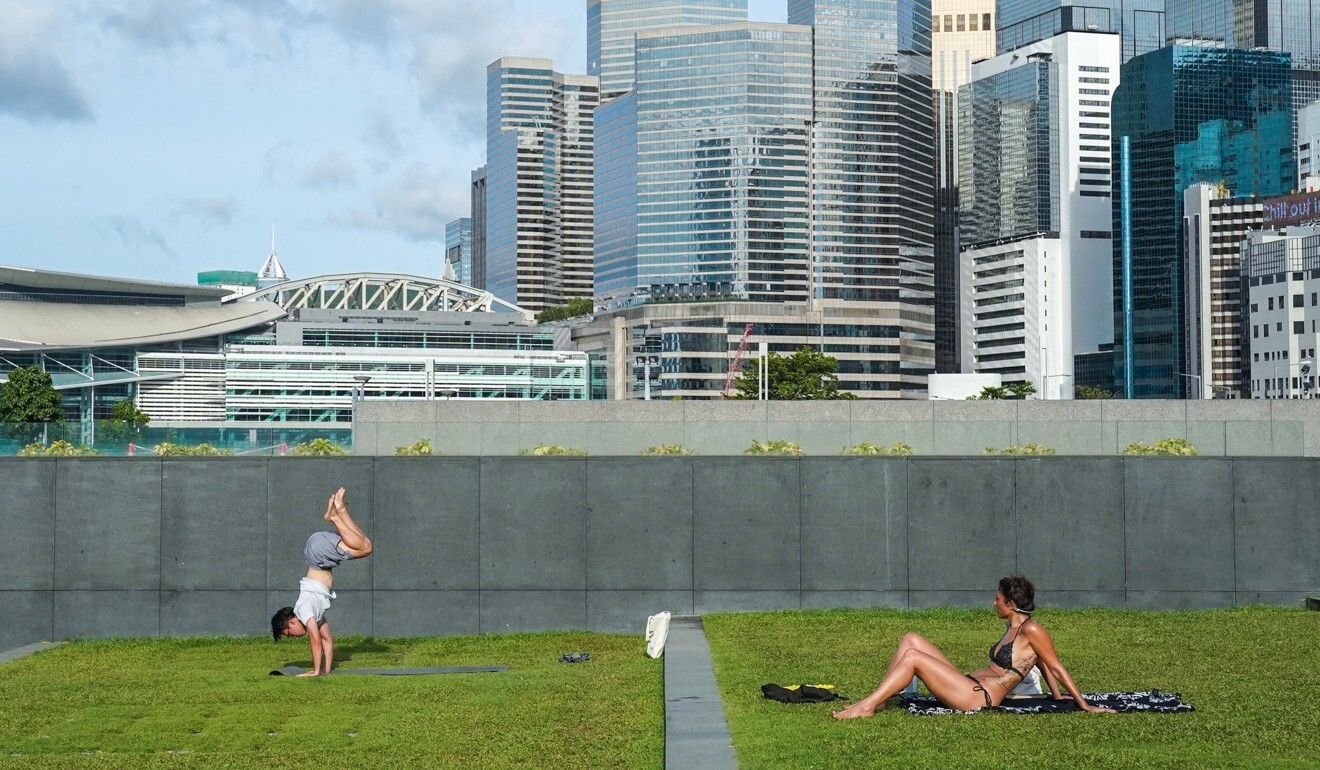
What groups will be affected?
Only children under the age of two or with a “reasonable excuse” such as medical conditions will be exempted from the new mask regulations. Mask-wearing is not mandated when eating and drinking or taking medicine.
For smokers, health director of special duties Thomas Chan Chung-ching said at the press conference: “The public should take this opportunity to quit smoking and avoid doing so in public areas.”
Those who flout the rules will be subject to a maximum fine of HK$5,000 (US$645).
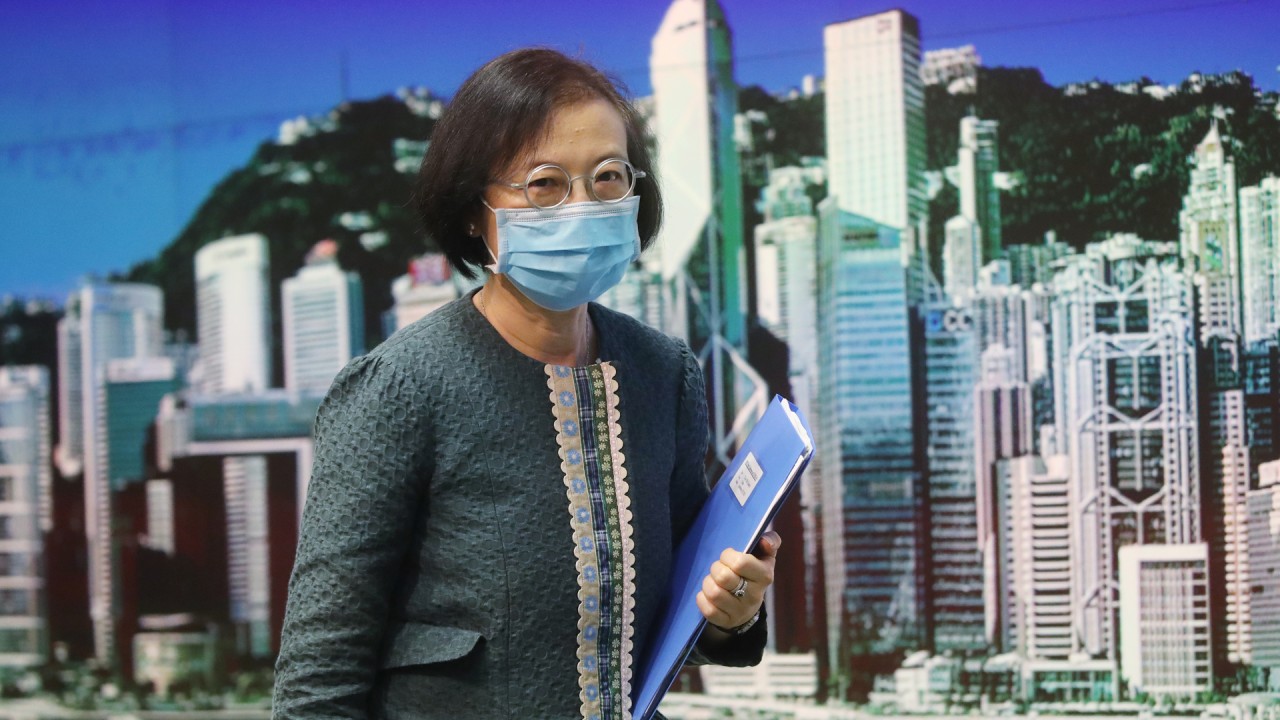
00:51
Face masks mandatory in Hong Kong as city tightens up measures to control Covid-19
Should you exercise with a mask on?
The World Health Organisation (WHO) said in its guidelines last month that people should not wear masks when exercising as this could reduce the ability to breathe comfortably.
Although it was still possible to exercise with a mask on, a degree of discomfort from sweat and heat generated via exercise, as well as from the environmental temperature, could be expected, said Julien Baker, a professor and head of the department of sport and physical education at Baptist University.
He added that people should be aware of the large amounts of water vapour carried in expired air when they exercise, which can compromise their face masks.
“Depending on the type of mask used, this may compromise the integrity of the mask, making it wet and inefficient as a protective device … There may also be potential for poor hygiene associated with a saturated mask,” he said.
Experts also said people should avoid exercising vigorously outdoors with a mask on.
“Previous research has shown that masks that restrict air flow increase the rate of perceived exertion, in other words, the difficulty of an exercise, while also reducing exercise performance,” said Stephen Wong Heung-sang, professor and chairman of the department of sports science and physical education at Chinese University.
He recommended that those with pulmonary or other serious medical conditions seek medical advice before exercising with a face mask.
“Exercising vigorously with a mask on could place extra strain on the lungs and heart, and could be damaging to health,” said Benjamin Cowling, a professor of epidemiology and biostatistics at the University of Hong Kong. “Perhaps we will need to exercise at home, for the next few weeks.”
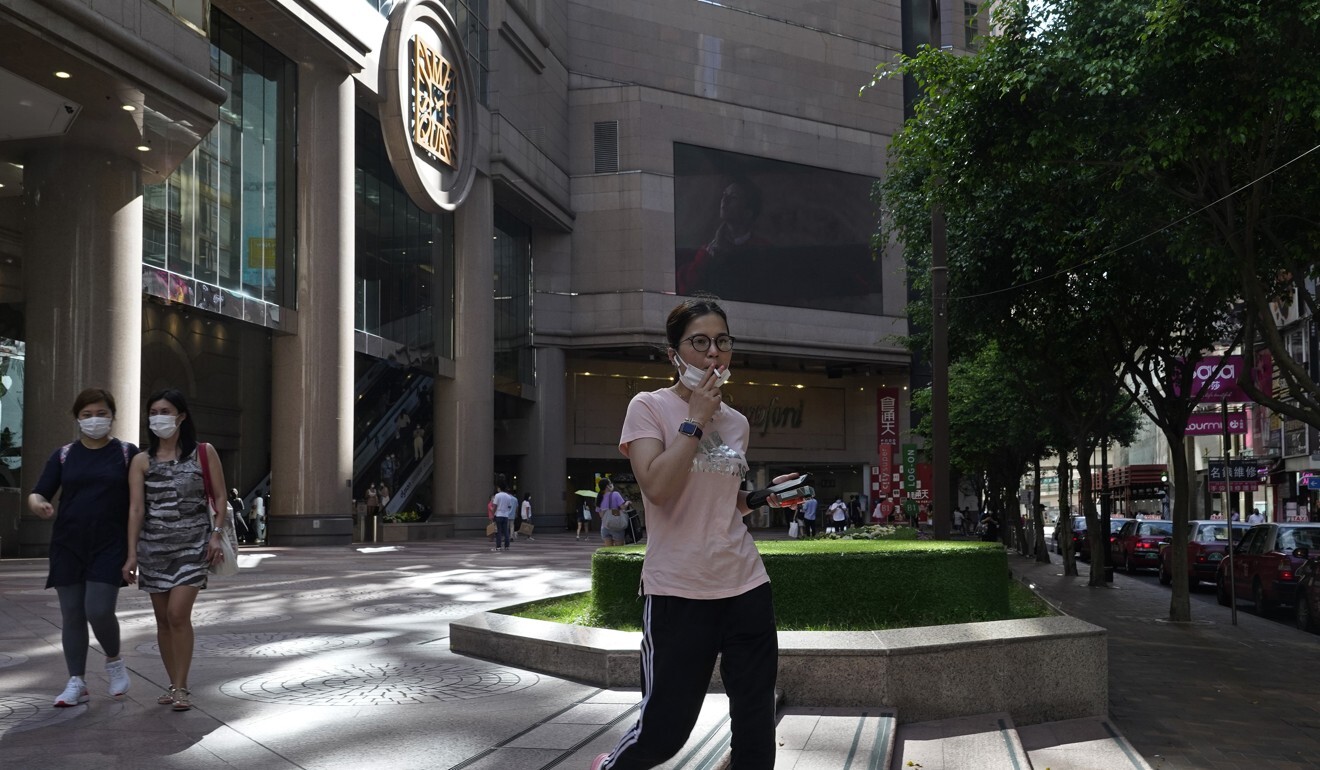
How should people cope?
The WHO said individuals should maintain physical distance of at least 1 metre from others.
Baker suggested exercising in isolation as much as possible and doing this at home, such as running on the spot, climbing stairs or resistance training.
“Exercising in groups should be avoided, particularly doing so indoors. There will be potential for sweating and [air flow] could contribute to the spread of the virus,” he said.
Baker and Wong suggested that people engage in lighter exercise such as walking, and working out during cooler parts of the day, such as in the early morning or late evening, with the mask-wearing mandate in place.
“The intensity of the walk could be … based on individual age and fitness levels. For individuals with underlying health problems, it may be better for them to [exercise in the form of walks] with a partner [at least 2 metres behind] at an intensity that is manageable,” Baker said.
What have other governments done?
Singapore continues to require mask-wearing outdoors after easing its “circuit breaker” in June, but the rule does not apply to those engaging in strenuous physical exercise, such as jogging or running.
In England, it became mandatory for customers to wear face coverings in shops, supermarkets, banks and post offices last Friday. Mask-wearing was also put in place for public transport from mid-June.
Although there is no national mask mandate in the United States, more than 20 states have made wearing face coverings while in public compulsory.